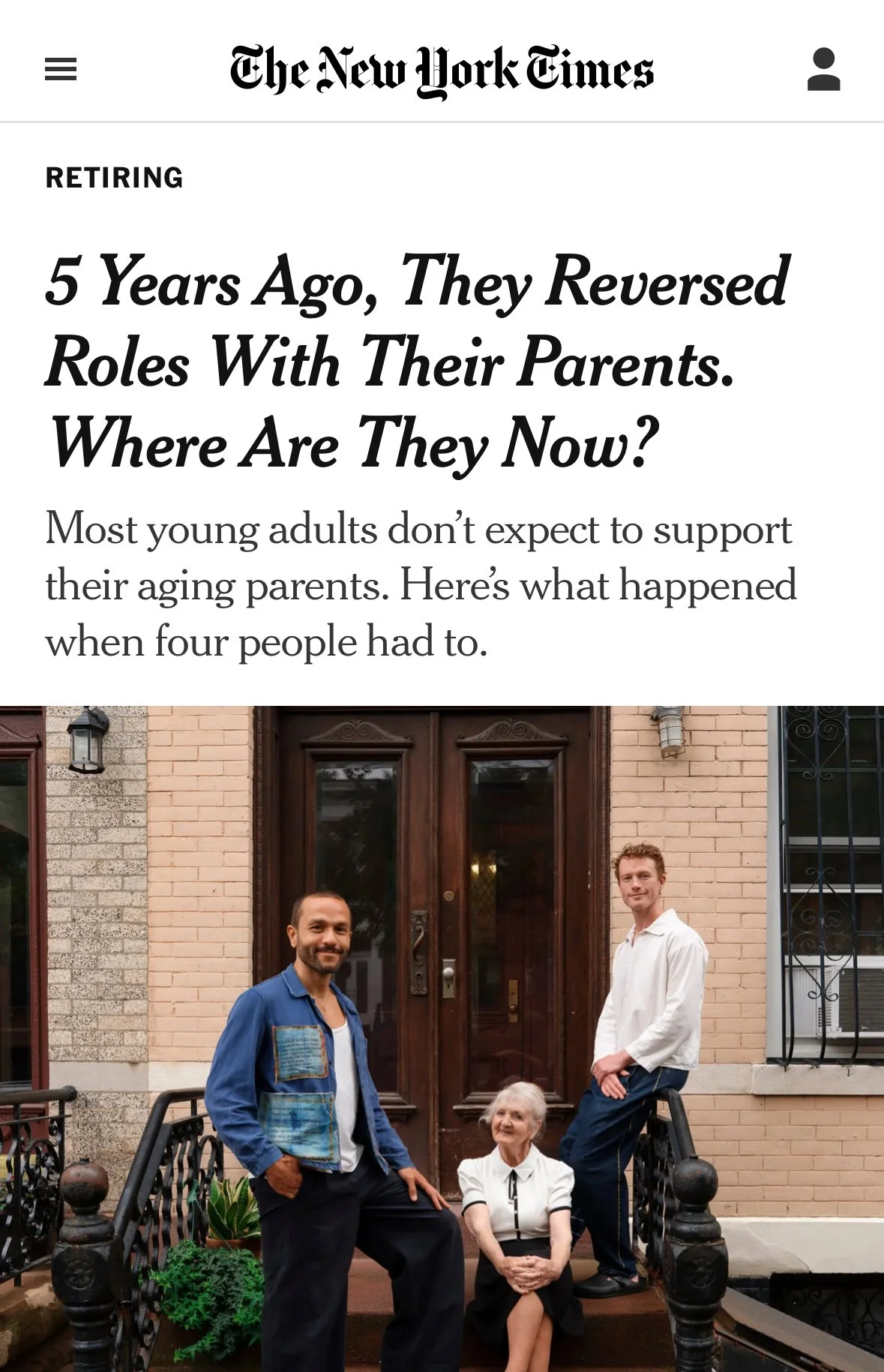New York Times: 5 Years Ago, They Reversed Roles With Their Parents. Where Are They Now?
EXCERPT OF AN ARTICLE BY CHARLOTTE COWLES, ORIGINALLY PUBLISHED IN THE new york times july 20, 2025
Most young adults don’t expect to support their aging parents. Here’s what happened when four people had to.
Excerpt: At the time, Mr. Regis didn’t know anyone else in his shoes, either. “None of my friends had parents living with them,” he said. That changed after he and his mother shared their experience in a New York Times article about young adults who were financially supporting their parents, published in May 2020.
In the years since, those young adults have found solidarity with others in the same boat — people in their 20s, 30s and 40s who help their parents with money, housing or both. As Mr. Regis said, “It opened up conversations with peers that made me realize I was much less alone in my responsibilities than I thought.”
He’ll have even more company soon, especially if the economy tightens and social services diminish. A 2024 survey conducted by the AARP found that 20 percent of respondents over 50 had no retirement savings at all, and more than half said they would not be able to support themselves when they could no longer work. Their adult children may be needed to fill in the gaps, whether they know it yet or not.
Now, half a decade after the article’s publication, The Times followed up with those who participated in it to see how they are faring.
Money ‘wasn’t the main point’
Even though the decline of a parent is hard to think about, it needs to be part of everyone’s financial plan, said Georgia Lee Hussey, a certified financial planner in Portland.
“These days, the majority of my clients have a parent calculated into their finances in some way or another, and I always ask about it whenever I’m working with someone new,” she said.
Most clients are relieved when she brings it up. “It used to be that most middle-class or wealthy families didn’t have to worry about their older relatives, whereas now it’s becoming more of a widespread concern,” she said. “As social safety nets like Social Security, SNAP benefits, and Medicaid and Medicare are under threat, the elderly are much more vulnerable, whether they’re aware of it — or will admit it — or not.”
No matter what her clients’ situation might be, Ms. Hussey encourages them to suss out their parents’ retirement plans.
“If it seems your parents might be resistant to the topic, I’m a big fan of making up a ‘friend’ who’s having a hard time, and using that as a way in,” she said. “Like: ‘I have a friend whose parents weren’t able to find the supportive housing they needed, and I saw how hard it was for the whole family. I want to make sure we avoid that. Should we research your options?’”

